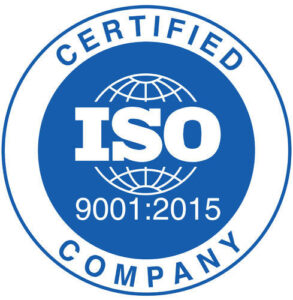- Home
- Business Registrations
Tax Registrations
Other Registrations
Safeguard Registrations
Other Registrations
Safeguard Registrations
- Compliance Services
Labour Laws Compliances
- DSC
- Incentives
- Business Closure
- Other Services
- Blogs
An overview:
For achieving your entrepreneur dream, there are various forms of doing business by making business entities in the form of Proprietorship, Partnership, Trust, Society, Company, etc. LIMITED LIABILITY PARTNERSHIP FIRM (LLP) is also one of them. The Limited Liability Partnership Act, 2008 was published in the official gazette on 9thJanuary 2009 in India and come into effect from 31st March 2009.
LIMITED LIABILITY PARTNERSHIP FIRM (LLP) is regulated by the provisions of Limited Liability Partnership Act, 2009. LIMITED LIABILITY PARTNERSHIP FIRM (LLP) is a separate legal entity having its own identity and recognized by the law. These concerns can be identified with the suffix “LIMITED LIABILITY PARTNERSHIP FIRM (LLP)” in their names.
“LIMITED LIABILITY PARTNERSHIP FIRM (LLP)” form of organization is widely chosen among the others as it contains the characteristics of both the Partnership Firm and the company. In LIMITED LIABILITY PARTNERSHIP FIRM (LLP), no partner is responsible for another partner’s negligence or misconduct.



![]() Existence will remain Forever
Existence will remain Forever
One of the unique features of the Limited Liability Partnership Firm (LLP) registration is that Partners may come and go but the existence of the Limited Liability Partnership Firm (LLP) will remain forever until and unless it is closed as per Limited Liability Partnership Act, 2008.
![]() Recognition as a Separate Legal Entity
Recognition as a Separate Legal Entity
Registering your business as a Limited Liability Partnership Firm (LLP), helps your organization to explore the markets and expand the business in the corporate world as the businesses which are legally recognized by the statue are more preferred.
![]() Establishing Reputation
Establishing Reputation
A separate legal entity having its own recognition and identity is always considered as a reputable organization. There is a bond of trust between the owners and the customers due its legal identity.
![]() Characteristics of both company and Partnership Firm
Characteristics of both company and Partnership Firm
Limited Liability Partnership Firm (LLP) is a mixture of company and partnership firms as it contains the characteristics of both. It has benefits and characteristics of Private Limited Company and at the same time it can be operated flexibly like a partnership firm on the basis of mutually agreed agreement.
![]() Big Project Cost and Risk Factors
Big Project Cost and Risk Factors
Business entities which require high capital outflow, the financial institutions always prefer registered Limited Liability Partnership Firm (LLP)s having separate legal entity legal entity
![]() Limited Liability
Limited Liability
Unlike the proprietorship concern or partnership firm, the designated partners of the Limited Liability Partnership Firm (LLP) have no personal liability towards any unfortunate event like loss or failure in the business. Thereby protecting the personal assets of the Partners.
![]() Startup Benefits
Startup Benefits
Startup is the scheme of the government to give incentives and support the new businesses. Government gives the 3 years income tax exemption to the entity registered under the startup. But not every form of business can register itself in the startup. Only Limited Liability Partnership Firm (LLP) and Company are the forms of business which can register and take the benefits of the startups.
There are 3 types of the company- Private Limited, One Person Company and Public Limited Company. It is registered with Central Government.
It gives you right to suffix the word “Private Limited” for Private Limited Company in their name. There shall be at least two shareholders and maximum can be up to 200 shareholders. Minimum number of directors shall be two and maximum can be up to 15 directors. As their accounts are more transparent, Private Limited company is considered less risky than the sole traders and proprietorships and hence they have easier and greater access to the borrowings. Board of Directors are appointed to run the business of the Private limited company which may or may not include the shareholders. Its liability is limited i.e., it does not require owners to use their belongings to pay off the company debts
It gives you right to suffix the word “Limited” for Public Limited company in their name. There shall be at least seven members but there is no limit in respect to the maximum members. These companies are listed on the stock exchange where its share/stocks are traded publicly and financial statements regarding the income of company must be made available to the general public. These companies offer shares in the business to the general public and there is no restriction as to who can purchase shares in the business.
It gives you right to suffix the word “(OPC) Private Limited” for One Person company in their name. Unlike the Private Limited Company, government here provide an option to One Person Company in which a single person can incorporate a company by becoming its shareholder and Director. OPC also enjoys the benefit of separate legal entity. The liability of the member is limited to their share and it will not be personally liable for the loss of the company. Thus, the creditors can sue the OPC but not the member of the OPC. Certain other relaxations also provided to the OPC with respect to the Compliances like no need to prepare the Cash Flow Statement.
All types of company have their own benefits; however, the Private limited company is widely preferred among the others due to its various benefits and amenities provided and enjoyed by the private limited companies in terms of easy-to-get funds from various venture capitals, angle investments, NRI Investments. Further certain business activities are restricted in the OPC like investment in securities, non-banking financial activities however the same can be done by the private limited company by taking the approval of the concerned authority.
![]() Limited Liability
Limited Liability
Generally in other business if your business fails to pay the dues to your creditors, banks, etc then business owners are liable to pay it from their personal assets but the same is not in case of the Limited Liability Partnership Firm (LLP). In case of the Limited Liability Partnership Firm (LLP) if Limited Liability Partnership Firm (LLP) fails to pay its dues, then party cannot demand it from the personal assets of the Designated Partners. Partners are liable for only amount they contributed at the start of the business. Loss of remaining amount will beonly suffered by the person who paid the amount to the Limited Liability Partnership Firm (LLP). Further, individual partners are protected from the joint liability created by wrongful action or negligence of another partner. Thus, one partner cannot be held responsible for another partner independent action.
![]() No Requirement of Minimum Contribution
No Requirement of Minimum Contribution
In Limited Liability Partnership Firm (LLP), there is no need for the minimum capital contribution. It can be formed without the requirement of any minimum paid-up capital.
![]() No Limit on the partners of the business
No Limit on the partners of the business
Unlike the private limited company where there is restriction on having members more than 200, there is no such restriction in case of Limited Liability Partnership Firm (LLP). Limited Liability Partnership Firm (LLP) shall have minimum of 2 partners, and one must be resident in India. However, there is no limit on the maximum number of partners. Thus,Limited Liability Partnership Firm (LLP) can have any number of partners.
![]() Unique name
Unique name
As everyone found in India that same business name is used by various entities which make it difficult for entity to create a brand of their business, expand their business nationwide or worldwide and make difficult for the customer to identify the original entity and other person take its benefit by starting the business with the same name. This issue is tackled by the Limited Liability Partnership Firm (LLP) form of business. Once a name registered for the LLP, it cannot be registered by any other person or entity. Hence businesses enjoy the unique name and avoid the chances of delicacy.v
![]() Transferability
Transferability
It is a very important feature of Limited Liability Partnership Firm (LLP). When other forms of business are transferred or a partner is introduced in the firm then it requires to surrender the existing registrations including GST, PAN, TAN, EPF, ESI, etc and it will finish the track record of the business but in case of Limited Liability Partnership Firm (LLP) if the owners want to transfer its business or want to introduce the partner, there will be no change in the constitution and no need to surrender existing registrations and apply fresh registrations. It maintains the track record of the Limited Liability Partnership Firm (LLP) and increases the Goodwill of the Limited Liability Partnership Firm (LLP).
![]() Reliability
Reliability
Any person can verify the registration of the Limited Liability Partnership Firm (LLP) from the website of the Government and the name of the Designated Partners which build the confidence in the customers and make the entity more reliable.
![]() No Requirement of Compulsory Audit
No Requirement of Compulsory Audit
All types of company whether private limited or public limited, they are required to get their accounts audited irrespective of their share capital but the same is not the case with Limited Liability Partnership Firm (LLP). There is no such mandatory requirement of compulsory audit in Limited Liability Partnership Firm (LLP). Limited Liability Partnership Firm (LLP) needs to get their accounts audited only in the case when i) the contributions of the Limited Liability Partnership Firm (LLP) exceed Rs 25 Lakhs or ii) The annual turnover of the Limited Liability Partnership Firm (LLP) exceeds Rs 40 Lakhs.
![]() No Limit on Remuneration
No Limit on Remuneration
In case of Limited Liability Partnership Firm (LLP), there is no restriction on the amount of remuneration to be paid to the partners like in companies. However, the remuneration to be paid shall be authorized by the Limited Liability Partnership Firm (LLP) agreement and the amount of remuneration shall not exceed the amount prescribed in the Limited Liability Partnership Firm (LLP) Agreement.
![]() Non- Applicability of Dividend Distribution Tax (DDT)
Non- Applicability of Dividend Distribution Tax (DDT)
In company when the owners want to withdraw profits from the company then DDT (additional Tax Liability) @15% plus surcharge and educational cess needs to be payable by the company but same is not the case with the company. Partners can easily withdraw profit from the Limited Liability Partnership Firm (LLP) without paying any additional tax liability.
![]() Startup Benefits
Startup Benefits
Startup is the scheme of the government to give incentives and support the new businesses. Government gives the 3 years income tax exemption to the entity registered under the startup. Reduced the government fee for applying trademark, patent, copyright, etc. Government also made a seed fund specifically for the startups to provide collateral free loans and subsidies. But not every form of business can register itself in the startup. Only Limited Liability Partnership Firm (LLP) and Company are the forms of business which can register and take the benefits of the startups.








Among all, the first step involved for the process of company incorporation is ascertaining the availability of name. A company is identified through its name it registered on the Ministry of Corporate Affairs. Hence choosing an appropriate name is the important and crucial thing.
For the same, an application will be submitted for the reservation of name to the Ministry of Corporate Affairsby login to the sitehttps://www.mca.gov.in/mcafoportal/login.do and preference wise 2 names along with the business objective can be provided. Once the name gets approved, it’s reserved for 20 days within which applicant needs to complete all the remaining process for the incorporation of the Company.
Stakeholders shall ensure that the proposed name selected does not contain any word as prohibited in Section 4(2) & (3) of the Companies Act, 2013 read with Rule 8 of the Companies (Incorporation) Rules, 2014.Points to be considered while suggesting the name:
-Check Trademark for your proposed name on the site https://ipindiaonline.gov.in/tmrpublicsearch/frmmain.aspx
– Check domain for your proposed name on the site https://www.registry.in/index
-Check the availability of Company Name on the site https://www.mca.gov.in/mcafoportal/viewCompanyMasterData.do
Therefore, choosing an appropriate name which does not prohibit any law will be the most important thing.
There is also another way to finalize the name of company and its incorporation in one go i.e., apply name and company incorporation together. However, if the same has been rejected by the MCA, then all the documentation will be done again
Once the name gets approved in PART A, the basic details will be automatically filled in all linked forms of PART B. There will be total 4 linked forms which will be generated such as AGILE-PRO, Spice+ MOA, Spice + AOA and INC-9. These linked forms will be filled up with the necessary details like capital subscription, name of shareholders and directors, percentage of holding among the shareholders, Interest of shareholders in other entities, etc.
For completion of the Part B, many other details and documents will be required which is discussed as below:
For the E-filing of all the forms, Digital Signature is a mandatory requirement. Digital Signature is in form of digital key containing all the information about the registered signatory like name, address, Contact No, Email ID and the authority detail which has provided the certificate. All the forms will signed digitally by the authorized signatory by proving its identity through the Digital Signature Certificates.
Director Identification Number is a unique identification number of 8 digits for the directors of a Registered Company.Every director will be provided a unique number with which he will be identified by the MCA. To become a director, one shall apply for getting the DIN from the MCA.To applying DIN, the applicant has to make an application in e-Form DIR-3 and shall follow the below mentioned process
This form is for GSTIN, Employees Provident Fund Organization registration, Profession Tax Registration, Opening of Bank Accounts, Shops and Establishment registration.
It is mandatory to register for ESIC, EPFO, Professional Tax (for Maharashtra) and bank account opening to obtain AGILE-PRO via e-form, However, GSTIN Registration is optional for the applicants.
MOA is a document which contains all the fundamental information about the company, the objectives of the company in brief, the share capital, type of Shares whether equity or preference and its shareholders details, details of allocation of shares among the shareholders along with their name, address and occupation, etc. Company can perform and undertake only those activities that are mentioned in the objectives of Memorandum of Association beyond which the company cannot undertake any other objective but the Memorandum of Association (MOA) can be amended with the approval of the shareholders.
As per Section 4 of the Companies Act, 2013, Companies shall form MOA as specified in Tables A to E of Schedule -I of the Act. Below is the list of tables with their meaning:
Table A: Company Limited by shares
Table B: Company limited by guarantee and not having a share capital
Table C: Company limited by guarantee and having a share capital
Table D: Unlimited Company and not having share capital
Table E: Unlimited Company and having share capital
Hence Company shall adopt an appropriate table applicable to it as there are various forms of tables for different companies.
AOA defines the rules and regulations that govern the internal management of the company for achieving its objectives.
Various forms in Tables F to J for different companies have been mentioned under Schedule I of the Companies Act 2013 and AOA must be in the respective form.
Table A: Company Limited by shares
Table B: Company limited by guarantee and having a share capital
Table C: Company limited by guarantee and not having a share capital
Table D: Unlimited Company and having share capital
Table E: Unlimited Company and not having share capital
Declaration shall be given by the subscribers and directors in the form INC-9 that:
Once all the above documents and details are ready, then the application for the incorporation of the company can be made via e-form Spice accompanied by Spice MOA and Spice AOA with the registrar under whose jurisdiction the address of the company is located. All these e-forms need to be affixed by the Digital Signatures of the respective persons.
The Registrar of Companies will grant a Certification of Incorporation along with the Copy of PAN, TAN, EPF, ESIC which will be used as for the identity of the company existence.
Once the company gets incorporated then there are many compliances which need to be performed by the company
The Company within thirty days of its incorporation shall furnish to the Registrar of Company regarding verification of its registered office by filing the e-form INC-22.
INC-22 shall be downloaded from the Ministry of Corporate Affairs site and any of the following document will be attached with this form:
Every Company incorporated shall within 180 days of its incorporation shall file the declaration for the Commencement of the Business with the Registrar of Company. It is the declaration regarding that all the subscribers to the MOA have deposited the total value of the shares agreed to be taken by them in the Company Bank Account. Proof for the same shall be attached while filing the form INC-20A. Bank Statement shall be used as the evidence for the same.
COMPLIANCESPRO has a separate team which is expert in completing this complex process very easily and helps you to get the company registered within 3 daysonly in a very reasonable price.



We are an organized team of experienced CA, CS and Lawyers, duly supported by a pool of trained staff helping aspiring Entrepreneurs throughout India and providing professional services at the most reasonable fee with complete transparency and helping them to grow by taking their whole burden of all kinds of compliances so that they can focus on their business only.
We are an organized team of experienced CA, CS and Lawyers, duly supported by a pool of trained staff helping aspiring Entrepreneurs throughout India and providing professional services at the most reasonable fee with complete transparency and helping them to grow by taking their whole burden of all kinds of compliances so that they can focus on their business only.
©2022. Compliances Pro. All Rights Reserved.